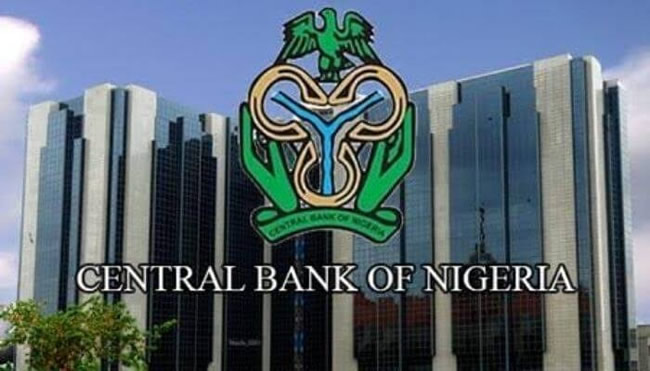By now, the Central Bank of Nigeria must be looking outside its toolbox in search of additional measures to contain the higher inflation rate in the country. Possibly the regulator may even be reviewing its measures to adjust the approach it has followed so far this year. This is so, despite the latest report from the National Bureau of Statistics, which showed a further deceleration in May.
The World Bank gave Nigerian media a front-page story last week, which sent the CBN back to the drawing board to review its policy review. In its Global Economic Prospects released seven days ago, the bank said that after initial shocks from the country’s macroeconomic reforms, economic conditions are expected to gradually improve, leading to sustained, but still-modest growth in the non-oil economy.
In addition, the oil sector is expected to stabilise as production somewhat recovers. To cap the expected recovery picture, the World Bank projected Nigeria’s growth to pick up to 3.3 per cent this year and 3.5 per cent in 2025. Last year, growth slowed to 2.9 per cent.
That was the good part, as the bank acknowledged the impacts of ongoing reforms. The one that made the headlines last week was: “Risks to Nigeria’s growth outlook are substantial, including the possibility that the tightening of monetary policy stops short of reining in inflation,” the bank said.
Now, we have to juxtapose the bank’s statement with an assertion by its fellow Bretton Woods institution, the IMF, made earlier in the year. In a statement early this year, the IMF indicated how the monetary policy of the CBN, especially its interest rate policy, would be conducted.
In early February this year, the IMF penned down its findings and recommendations at the end of Article IV mission to Nigeria by its staff. In a report on that mission, published in March, the Fund welcomed the various programmes by the government. These included the increase in CBN’s monetary policy rate. It welcomed the Monetary Policy Committee (MPC)’s decision to further tighten monetary policy. It noted that the MPC increased the policy rate by 400 basis points to 22.75 per cent for a total tightening of 1,025 basis points since May 2022. This decision should help contain inflation, which reached 29.9 per cent year-on-year in January 2024, and pressures on the naira.
“A sustained tightening cycle is needed to bring down inflation. This, together with rebuilding confidence in the CBN, will help stabilise the naira, and mitigate risks of an inflation-depreciation spiral”. Continuing to raise the monetary policy rate until it is positive in real terms would be an important signal of the direction of monetary policy,” it added.
Today, the MPR stands at 26.26 percent. The MPC has further raised it by 200 basis points in February and another 150 basis points. Yet the 750 basis-point increase has not been enough to halt inflation. The latest inflation figure, released by the NBS over the weekend, is 36.95 per cent, up from 29.9 per cent at the end of January.
Putting this together with the World Bank’s assertion should show that indeed, there is a problem with relying so much on interest rate changes as a means or the chief means of fighting inflation, in our part of the world.
Core inflation has risen from 29.90 per cent in January 2024 to 31.70 per cent in February, and 33.20 per cent in March. However, Food Inflation, a major driver of the inflationary pressure, rose to 40.66 per cent in May, slightly up from 40.53 per cent in April. On a year-on-year basis, it grew by 15.84 per cent from 24.82 per cent in May 2023.
This mixed bag suggests that while the general inflation rate is catching a breather, essential goods and services are still feeling the heat, Comercio Partners said in a research note to its clients after the publication of the May report.
In other words, given the above trend, the authorities should now turn to the fiscal side of the policy landscape. Comercio recommends that to stabilise the macroeconomic environment and foster conditions conducive to business operations and I would add, given that perhaps we have reached a state where the interest rate has become ineffective in this process, more robust and targeted fiscal interventions from the government are necessary.
The company said such fiscal policies should aim to enhance supply chain efficiencies; provide tax relief and incentives for manufacturers, and improve the infrastructure to reduce production and distribution costs. It also wants such measures to include those to stabilise the currency.
It noted that while monetary policy has shown some effectiveness in controlling inflation incrementally, the overall economic situation remains challenging. Business closures and rising unemployment underline the need for comprehensive fiscal strategies to create a sustainable and growth-friendly economic environment.
It is clear now that this economy must be allowed to grow this year, despite the projected growth rate by the World Bank. A continuation of the current tight policy is sure to undermine the growth prospects. From nationwide insecurity that hinders farmers from going to farms, either to cultivate or harvest crops, Nigeria faces stiff structural challenges that constitute part of the “substantial risks” that the World Bank said are still confronting Nigeria’s outlook.

 Join Daily Trust WhatsApp Community For Quick Access To News and Happenings Around You.
Join Daily Trust WhatsApp Community For Quick Access To News and Happenings Around You.


